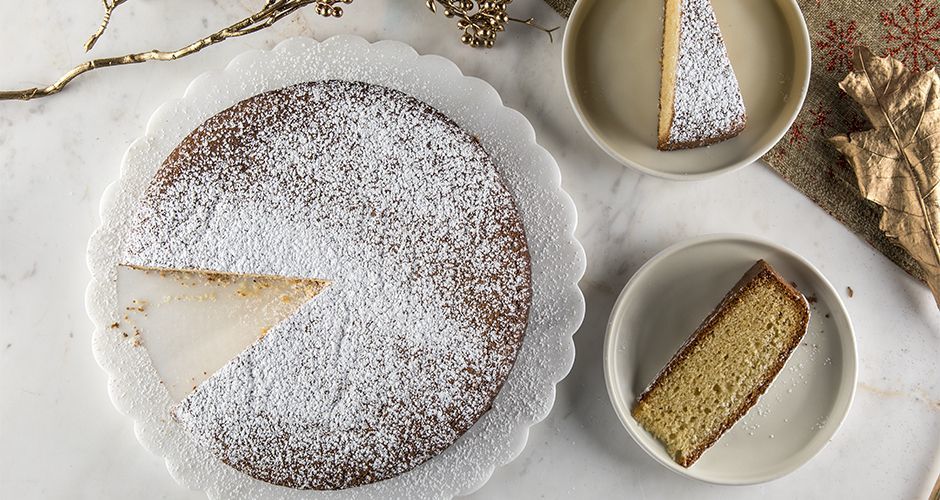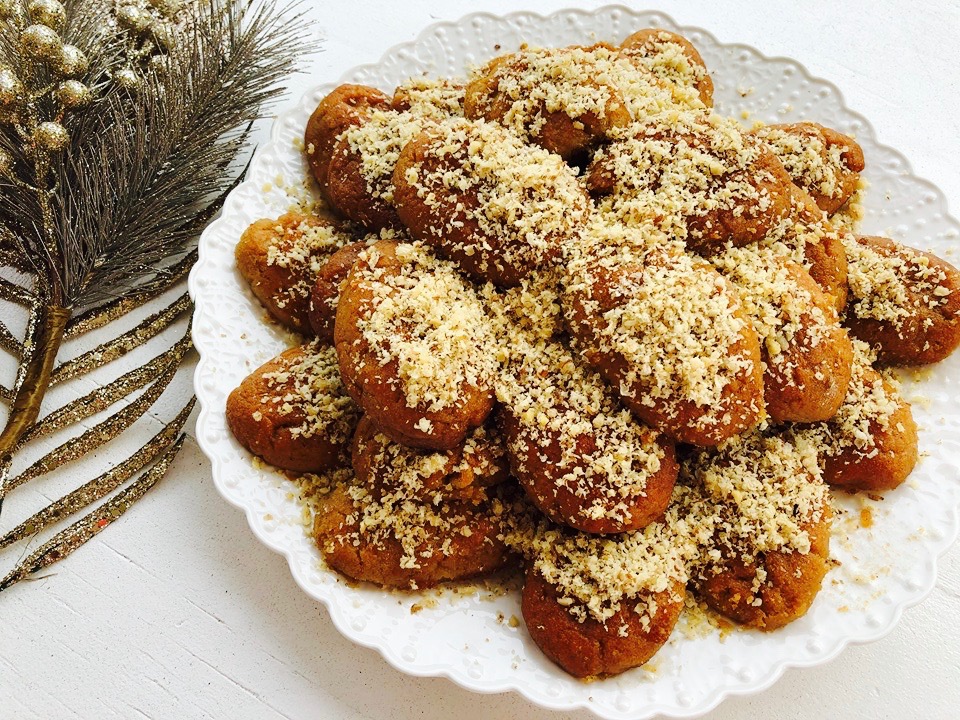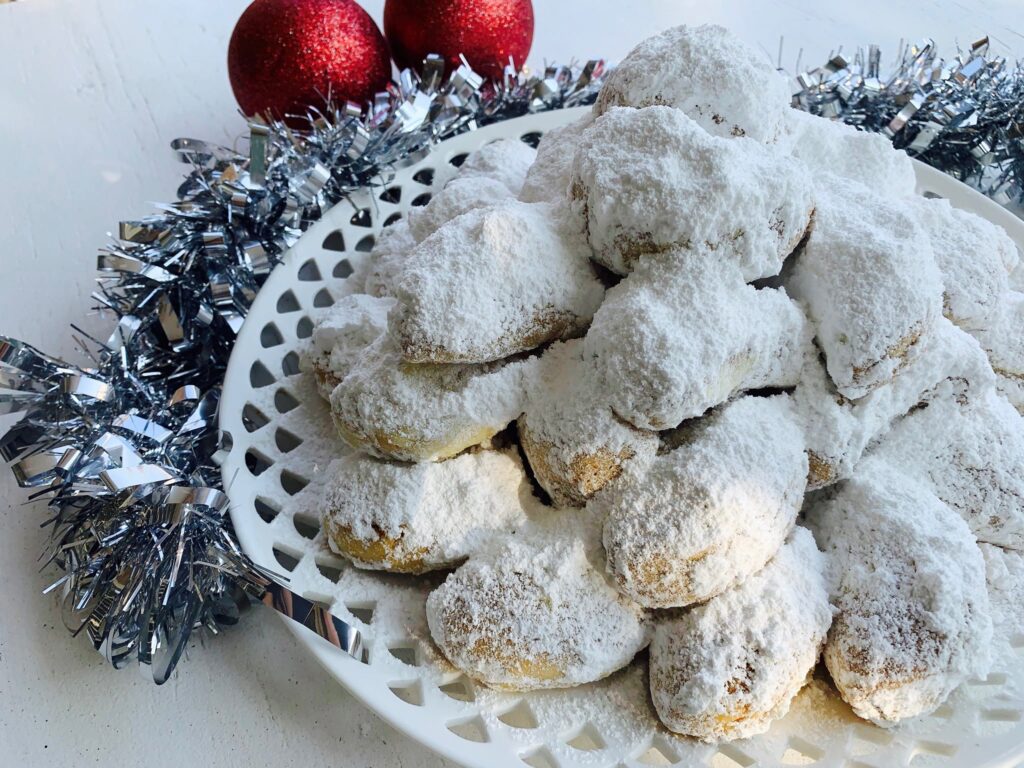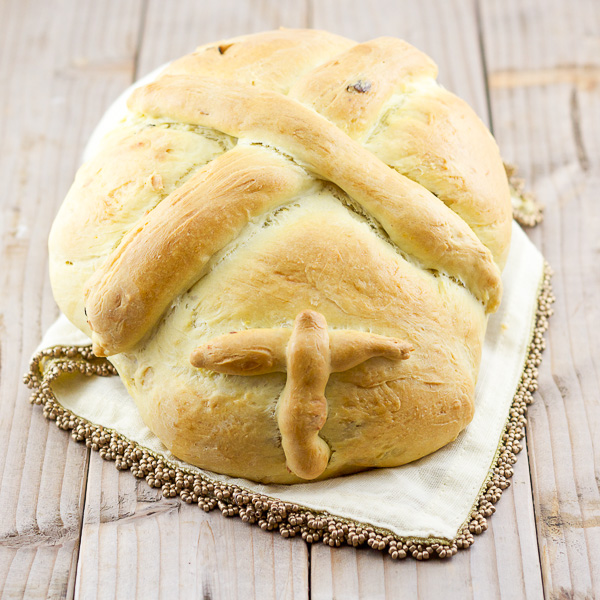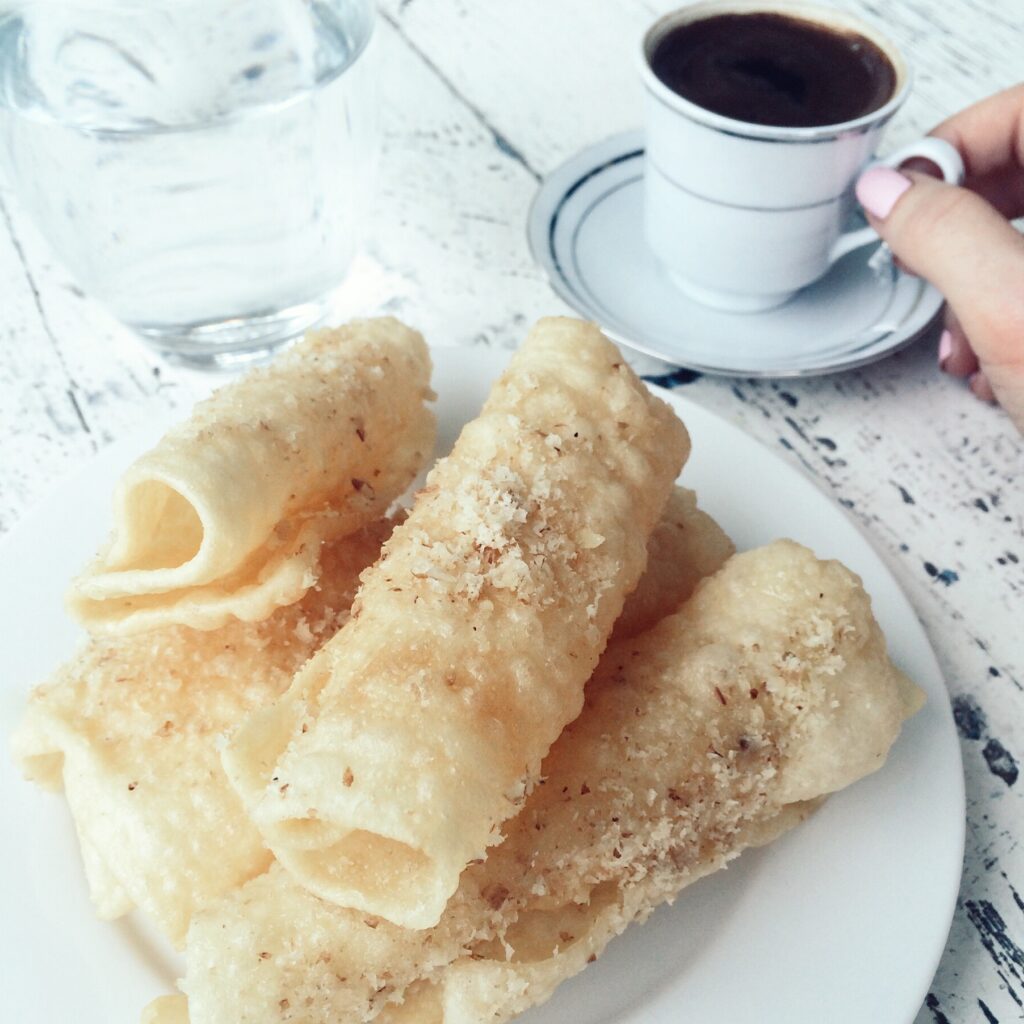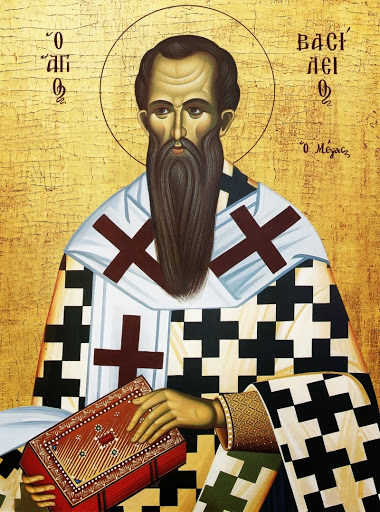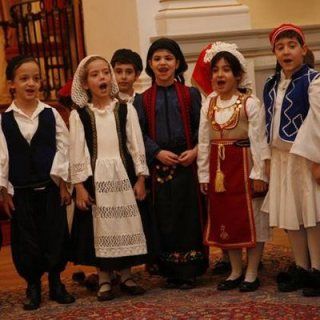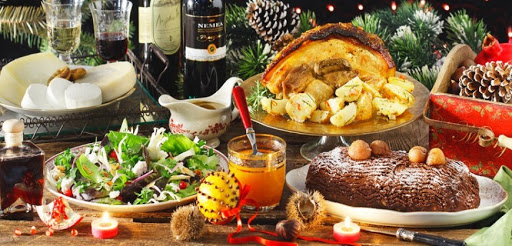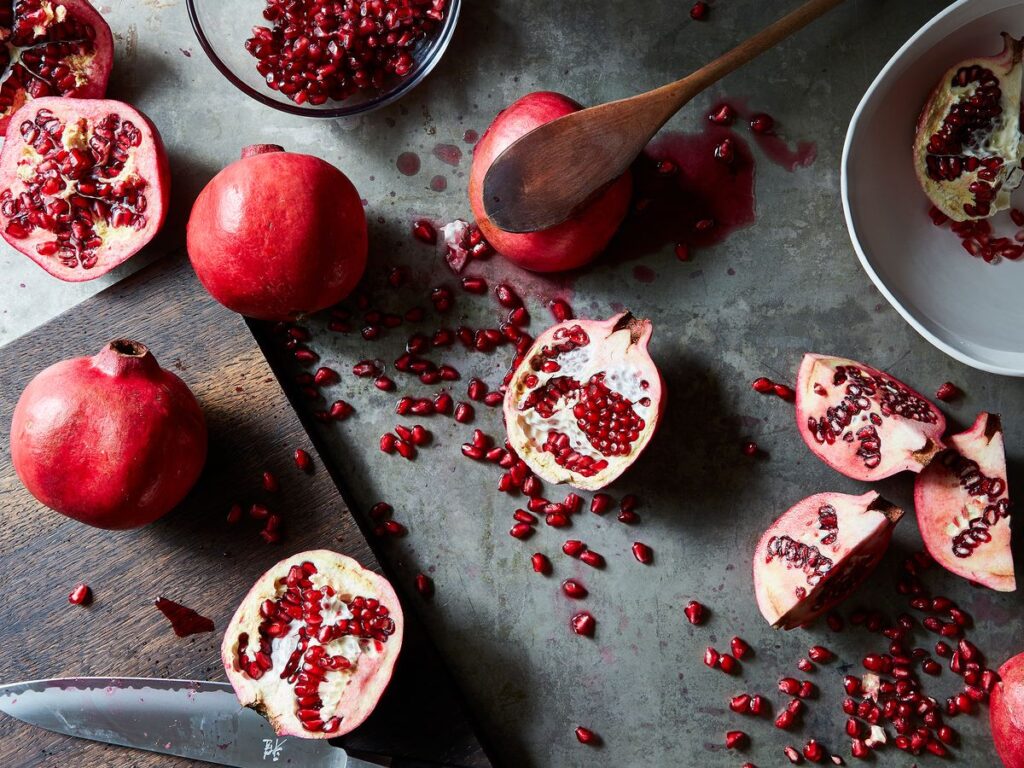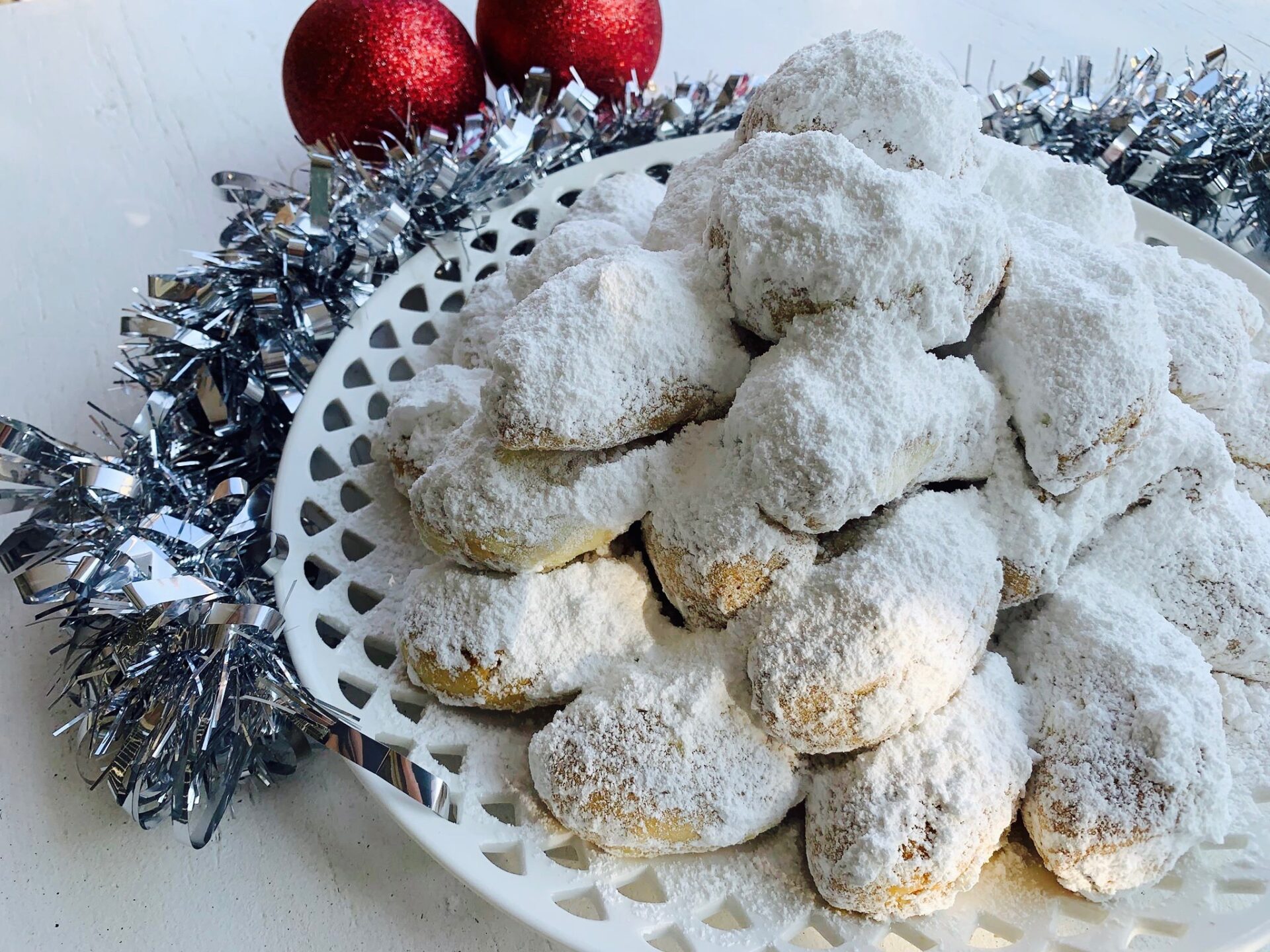Melomakarona and Kourabiedes are by far the most popular Greek sweets during the Festive Season and no Greek Christmas dessert table is complete without either.
Here are our traditional family recipes for both Melomakarona and Kourabiedes for you and your loved ones to enjoy.
Happy Baking!
Kourabiedes Recipe
Ingredients
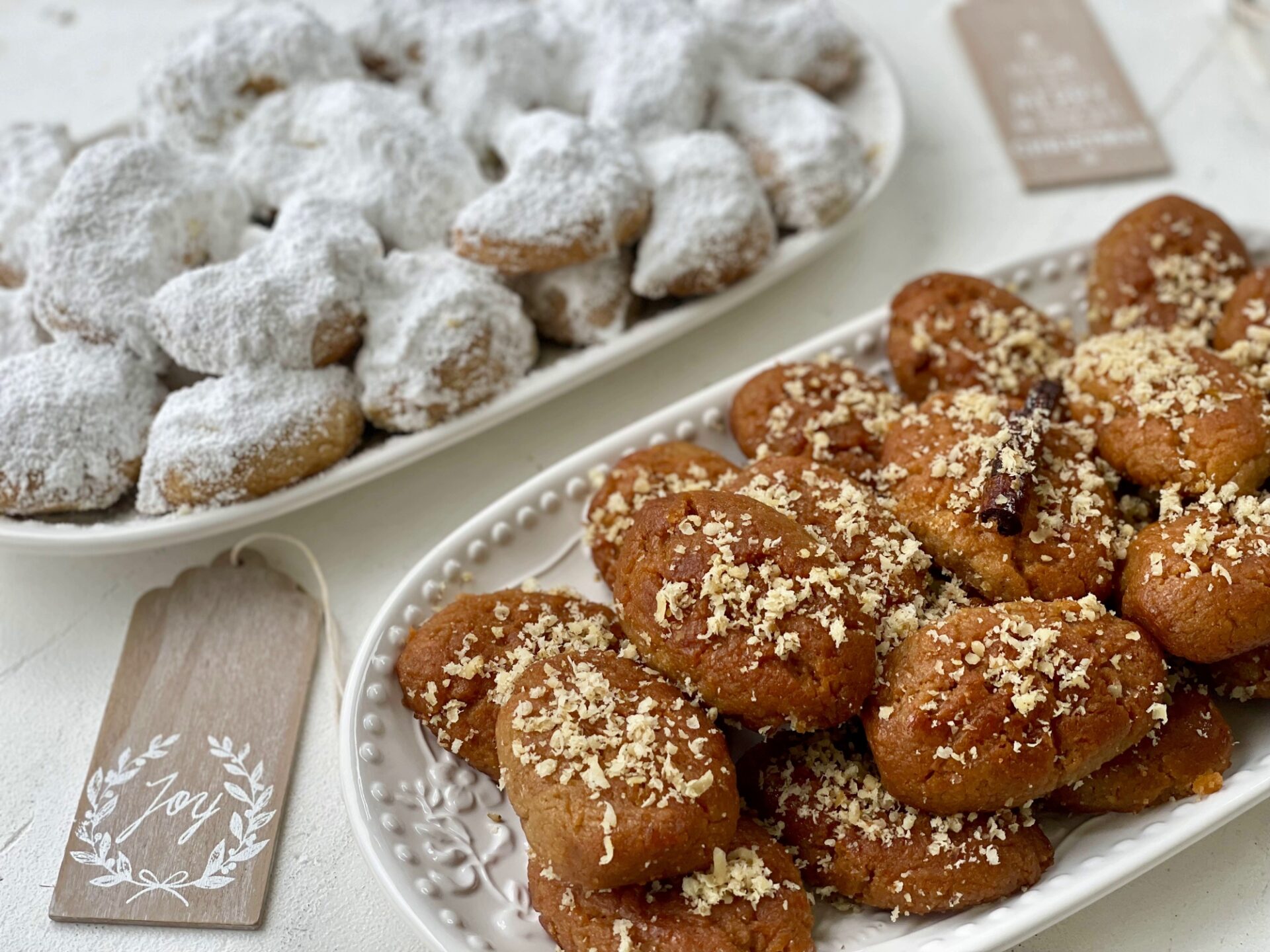
– 500 x grams unsalted butter
– 1 x kilo self-raising flour
– 200 x grams caster sugar
– 2 x egg yolks and 1 egg white
– 1 x cup olive oil
– 3/4 x cup of Ouzo
– 200 x grams chopped almonds
– 1 x teaspoon baking powder
– 3 x cups confectionary sugar for dusting
Method
-Spread chopped almonds on baking paper and place on a baking tray. Toast in the oven for about 10 minutes in a 150 degrees celsius oven or till lightly browned.
– Add butter to a small saucepan and melt over low heat.
– In a large bowl add melted butter with caster sugar and use mixmaster to mix until light and fluffy. Gradually add 1/2 cup of ouzo, olive oil, egg white, yolks and toasted almonds and mix all together for about 5 minutes on high speed.
– In another bowl, combine flour and baking powder. Slowly add flour mixture to butter mixture and blend until smooth.
– Roll about 2 tablespoons of dough into small balls and then start forming them into a crescent shape.
– Line baking trays with baking paper and place the biscuits on paper. Bake in a 180 degrees celsius oven for about 20 minutes.
– Allow biscuits to cool for about 5 minutes and then lightly drizzle some Ouzo on top of them.
– Place wax paper on your working bench and then sift 1 and 1/2 cups of confectionary sugar over the paper. Transfer the biscuits onto paper and then sift the remaining confectionary sugar on top.
– Allow to stand until completely cool and then store in an airtight container.
Melomakarona Recipe
Ingredients
-2 x cups olive oil
-1 x cup sugar
-1 x cup fresh orange juice
-zest of 1 orange
-1 x tablespoon vanilla sugar
-4 x tablespoons Cognac
-1 x teaspoon baking powder
-1 x teaspoon baking soda
-2 x tablespoons ground cinnamon
-1 x tablespoon ground cloves
-1 x kilos self-raising flour
-150 grams fine semolina
-chopped walnuts for garnishing
For the syrup
-3 x cups sugar
-1 x cup honey
-2.5 x cups water
-1 x cinnamon stick
Method
– In a large bowl add sugar and oil and whisk for about 7 minutes.
– In a small bowl add orange juice, Cognac, baking soda, baking powder and mix well.
– Pour the juice into sugar mixture and also add orange zest, cloves, cinnamon, vanilla sugar and semolina and whisk till well combined
– Slowly add in flour and mix together.
– Knead the dough with your hands until the dough is soft and smooth.
– Begin making melomakarona into oblong shapes and place each piece on baking paper-lined trays.
– Place in 180 degrees celsius (preheated) oven and bake for 20 minutes, or until melomakarona are golden brown.
– In the meantime to make the syrup add all ingredients into a saucepan and boil for 6 minutes.
– When melomakarona come out of the oven, place them in cooled syrup flipping them with a slotted spoon to absorb the syrup.
– Place cookies on a serving platter and sprinkle with chopped walnuts.
*Recipes & Images by IN+SIGHTS GREECE © (Copyright)

